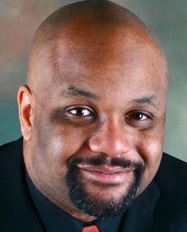 In a recent article on his website entitled “It’s Time to Get Black Scholars Off the Academic Plantation,” Dr. Boyce Watkins of Syracuse University questions the career track taken by many African-American scholars.
In a recent article on his website entitled “It’s Time to Get Black Scholars Off the Academic Plantation,” Dr. Boyce Watkins of Syracuse University questions the career track taken by many African-American scholars.
Dr. Watkins writes: “As you spend your career writing one research paper after another, you also teach classes, with many of them having only one or two black students. White folks have all the money, so the dominant paradigm in this model of academic imperialism is to disappear from the black community and use your PhD as your ticket to ‘Never Land.’ The academic plantation offers some black scholars a false validity; part of the ‘mama I made it’ syndrome that adds almost nothing to the communities from which they came.”
We urge subscribers to read Dr. Watkins’ article and we would be interested to hear your comments. Post your comments below.













Interesting thought. Just out of curiosity, what should people with education do? Can we get funding to start think-tanks to address our issues and hopefully, create jobs and restabilize our communities?
I didn’t relaize that Syracuse University was an HBCU!!!!
Excellent response!!! Dr. Watkins needs to answer the question for himself. There is not any evidence that he has challenged himself to use his talents at HBCUs or within the Black community.
The think tanks already exist…HBCUs. The funding should come from us educated Blacks. I champion this point with fellow Big 10 alumni that totally reject the notion because the ice is not as cold at HBCUS….smh
I find this article to tell the complete truth. As a AA Woman at a TWI, I completely understand and find myself trying to figure out how to make more of an impact in our community. I would love to see how we as AA scholars can do that regardless of the field we study. I look forward to reading ideas.
Attacking Dr. Boyce is not the answer. Let’s evaluate our positions and see what we can do to uplift our people.
To IJS, perhaps you have not followed Dr. Watkins’ commentaries and attacks on people who supposedly are not doing anything for Black people. So any responses that sound like an attack might have bases IN FACT. Anytime that happens, the first question needs to be “What Am I Doing for the Black Community and Black Students?”
African American scholars should work wherever they wish. They also should be strong enough to never forget who they are, as well as from whence they came, and be willing to “pay it forward.” White students, faculty, and administrators need an education about the capabilities of people of African descent, regardless the number of generations removed from The Continent. Black students need that education about the excellence, which rests among people who look like them.
The Boyce Watkins’ types of the USA need to be willing to engage in deep self-assessments on many fronts. They also should NEVER set themselves above/apart from the Black Community while issuing destructive criticisms.
It is a mean world out there for African American scholars at TWIs, as well as for well-educated African Americans across the spectrum. For those who will be honest, it is horrendous regardless the job undertaken, especially if you are strong enough to refuse to relinquish your ethnic/racial identity and dedication to your people.
Walter Dubois has said it BEST!!!! Thank you.
I respect Dr. Watkins’ opinion, but I believe that by suggesting a wholesale intervention of getting Black scholars off of the “plantation”, he clearly misses the mark. I am a tenured professor at a predominantly White institution – the first Black male EVER to earn tenure in my department. I am at a PWI because I worked my ass off to become a great researcher. I understood the rules of the game and decided to use them to my advantage. I knew the odds were against me, but when I thought about what our forefathers and foremothers went through to get their degrees, my dealings with racists whites (and others) became secondary to my goal of using my intellectual talents to improve the quality of people’s lives. I don’t go to work every day expecting to curry favor with white people. I knew I had to “wear the mask” for 5-6 years, publish in their journals, compete for their grant money, and position myself such that when the time came, hostile white people would become irrelevant to MY objectives. This is exactly what has happened. Black and other students of color enroll in my classes – even when they are not majors in my discipline. I’ve mentored over 80 students of color during the past 6 years – most of whom have gone on into graduate programs at HBCUs and PWIs. I ALWAYS use a proportion of my grant money to support colleagues and collaborators at HBCUs – creating research and professional opportunities for young brothers and sisters who aren’t even at my institution. If I adhered to Professor Watkins’ recommendation, I’d be selfishly promoting myself as “The People’s Scholar”, with my name on a URL. I would be spending my time on TV/radio every other night offering commentary about Kim Kardashian’s ass or sizing up the authenticity of The Real Housewives of Atlanta. Dr. Watkins…give us a break and stay in your lane. If getting off the “Plantation” is what works for you, so be it. But, remember that even Harriet Tubman came back every now and then – and she was never empty-handed.